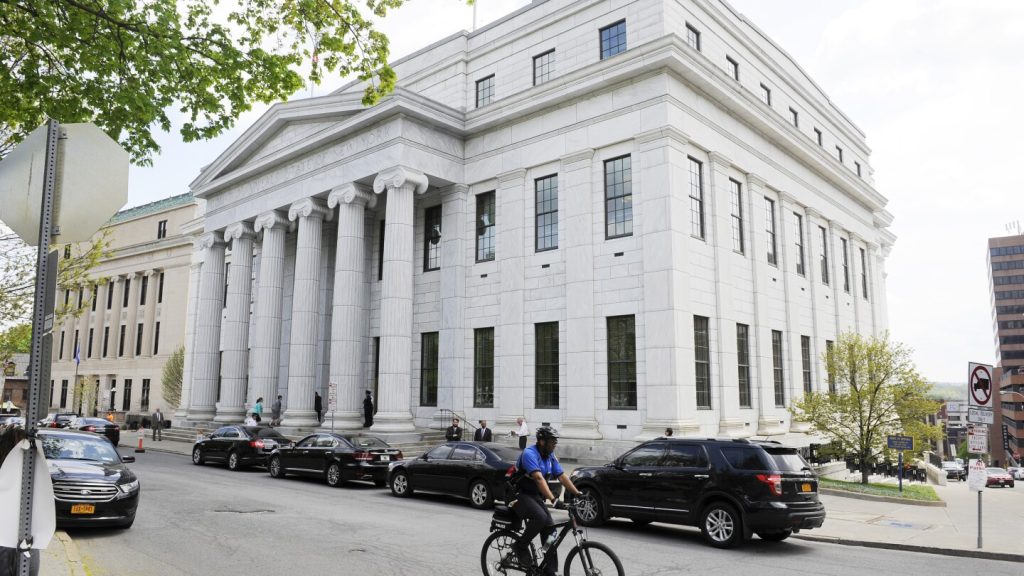The case before New York’s highest court revolves around a regulation that mandates health insurance policies to cover medically necessary abortions. The lawsuit challenging this rule was filed by the Roman Catholic Diocese of Albany and other church groups, citing violations of their religious beliefs. State regulators approved the requirement in 2017, and it was later codified into law in 2022. While the religious groups are challenging the regulation, the law itself remains unaffected. However, if the Court of Appeals overturns the rule, it could pave the way for a challenge to the law based on similar arguments, potentially impacting abortion access in the state.
The regulation includes a religious exemption, but arguments presented in court on Tuesday focused on whether these exemptions grant too much discretion to officials in determining which organizations are exempt from the coverage requirement. The outcome of this case could have far-reaching implications for abortion access in New York and may set a precedent for similar challenges in other states. The issue of balancing religious freedom with reproductive rights is a contentious one, with both sides arguing passionately for their respective beliefs. The court’s decision will be closely watched by advocacy groups on both sides of the debate, as it could shape the future of abortion policy in the state and beyond.
Proponents of the regulation argue that it is necessary to ensure that individuals have access to comprehensive healthcare, including reproductive services. They maintain that the requirement does not infringe on religious freedom, as exemptions are provided for organizations with objections to providing coverage for abortions. However, opponents argue that the regulation forces them to violate their religious beliefs by indirectly supporting a practice they consider morally wrong. They contend that the exemptions system is flawed and gives too much power to the government in deciding which organizations are eligible for an exemption, raising concerns about religious discrimination.
The case highlights the ongoing debate over the intersection of healthcare policy and religious freedom, particularly in the realm of reproductive rights. Legal experts stress the importance of striking a balance between protecting individual beliefs and ensuring access to essential healthcare services. The Court of Appeals’ decision in this case will likely have implications beyond New York, as it could influence future challenges to similar laws in other states. The outcome will be closely monitored by advocates on both sides, who are invested in shaping the legal landscape surrounding abortion access and religious exemptions. The court’s ruling could set a precedent for how these issues are addressed in the future, shaping the rights and obligations of healthcare providers and insurers in relation to contentious services like abortion.


